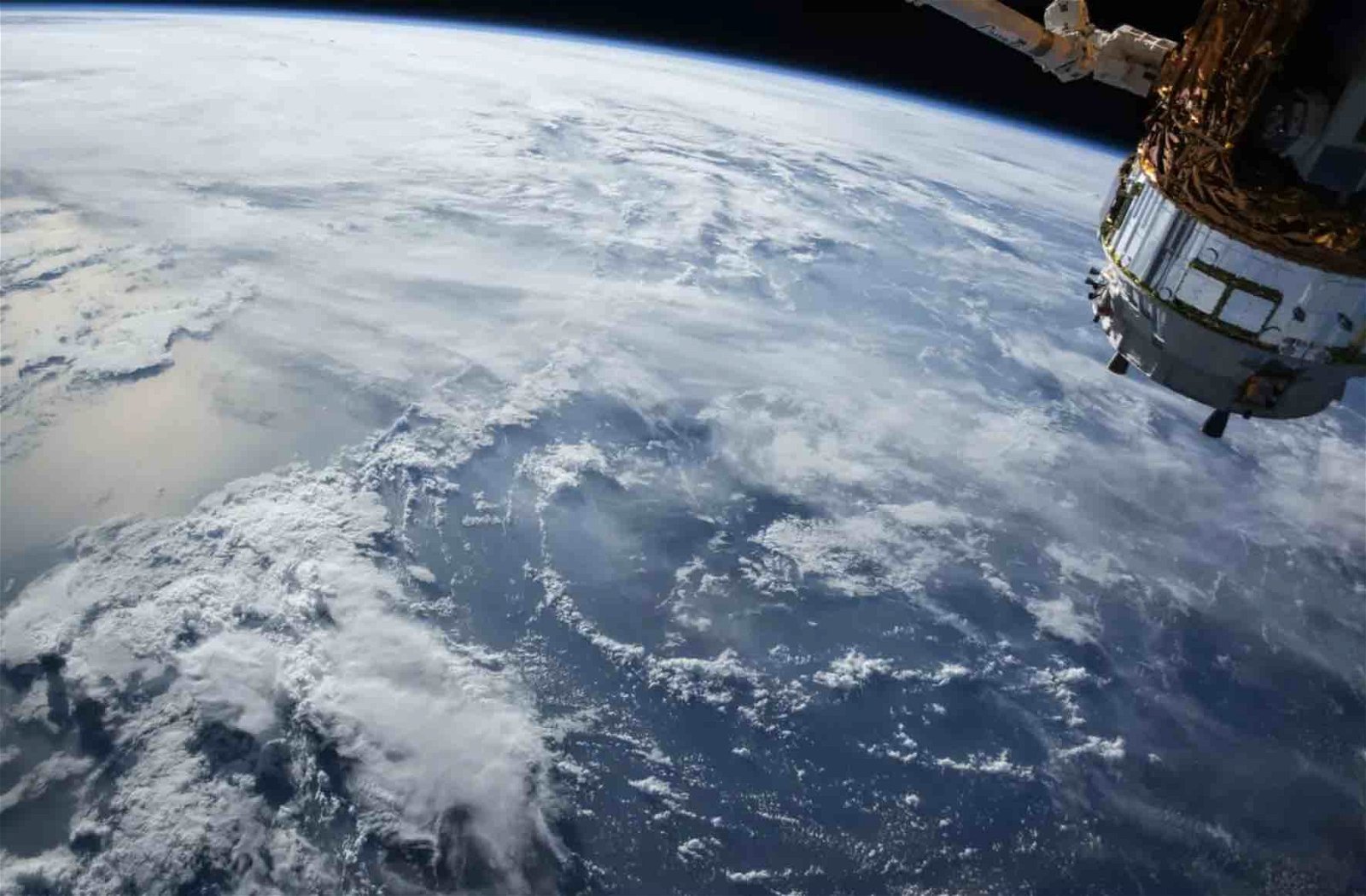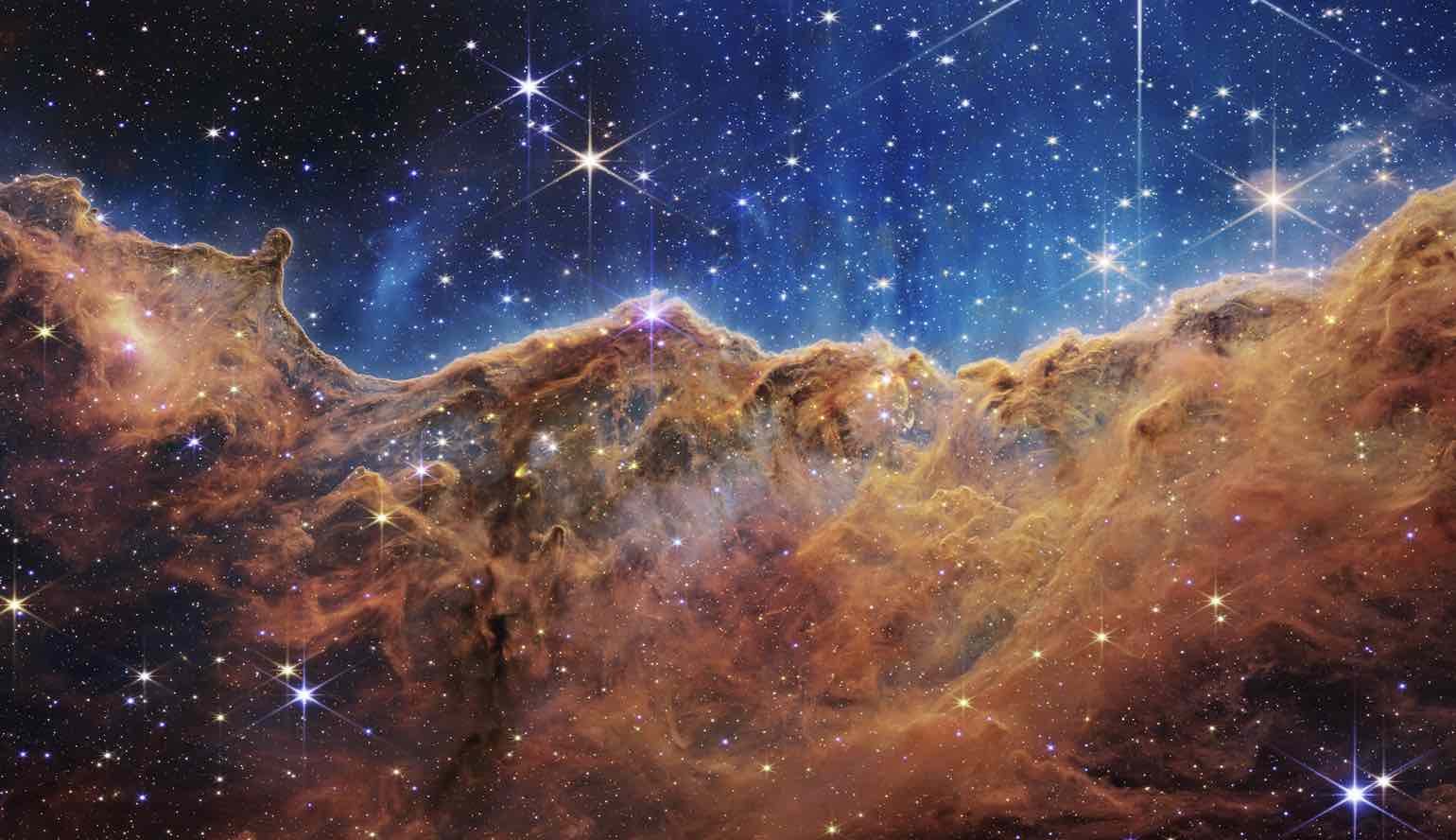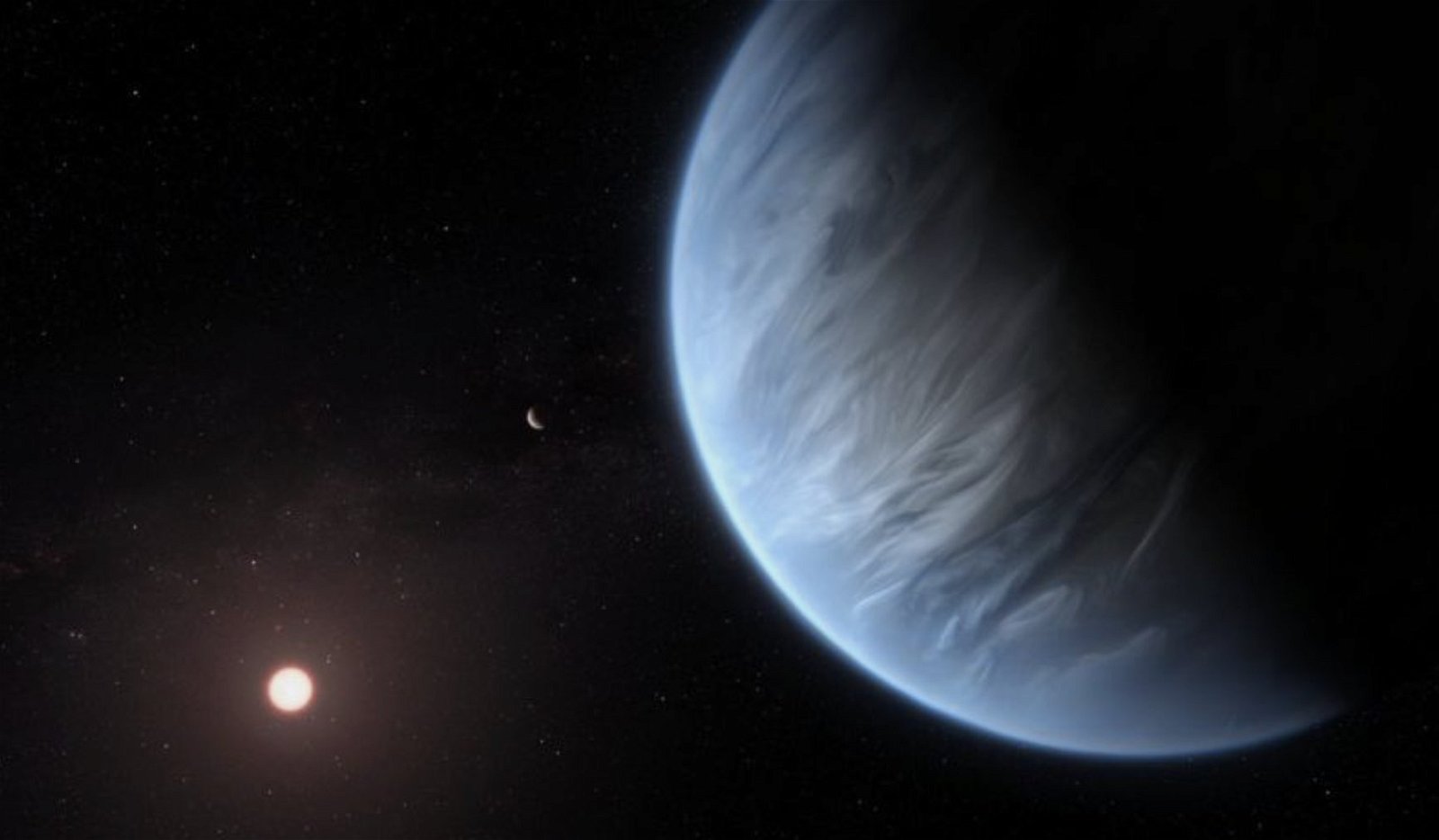

Welcome to this week’s installment of The Intelligence Brief… here within the first weeks of 2024, we are already hearing about tantalizing hints that a major scientific discovery may be on the way. In our analysis, we’ll be looking at 1) why many experts seem very certain that the discovery of alien life will be confirmed sometime in 2024, 2) what we know about the potential evidence currently in-hand, and 3) why some aren’t so sure that it’s aliens… but there is more than enough reason to remain open to the possibility.
Quote of the Week
“Two possibilities exist: either we are alone in the universe or we are not. Both are equally terrifying.”
– Arthur C. Clarke
Latest News: In recent coverage from The Debrief, Tim McMillan reports on how the World Economic Forum’s 2024 Global Threats Report identifies misinformation and disinformation as the top global risk, highlighting urgent need for action. Elsewhere, the United States Space Force has charged Microsoft with designing a cutting-edge space simulation program to train Guardians. You’ll find links to all our recent stories and other items at the end of this newsletter.
Podcasts: In podcasts from The Debrief, this week on The Micah Hanks Program I provide a complete breakdown of what we know about the recent classified briefing lawmakers on Capitol Hill received from members of the Intelligence Community about UAP. Elsewhere, on The Debrief Weekly Report, MJ, Steph, and Kenna Castleberry look at blue light technology that can help you fall asleep, why you probably hate vegetables, and new research into dark energy. You can get all of The Debrief’s podcasts by heading over to our Podcasts Page.
Video News: In the latest installment of Rebelliously Curious, Chrissy Newton is joined by Paul Root Wolpe as they delve into the world of genetic engineering and the fascinating intersection of science, ethics, and the future of life. Also, check out the latest episode of Ask Dr. Chance and all the other great content from The Debrief on our official YouTube Channel.
And now, it’s time that we shift our attention over to one of the most tantalizing questions humans have ever asked about the universe and our place in it… and whether an answer could finally be on the horizon.
Alien Musings
“Have we just discovered aliens?” read the title of an eye-grabbing piece published by The Spectator on January 8, 2024.
Quoting respected members of the scientific community that included UK astrophysicists Maggie Aderin-Pocock and Becky Smethurst, as well as astronaut Tim Peake, all of whom seemed to strongly allude to a discovery currently still on the path toward peer review
“I think we are going to get a paper that claims to have strong evidence for a biosignature in an exoplanet’s atmosphere very, very soon,” Smethurst was quoted saying. “Let’s just say it’s on my bingo card for 2024.”


Peake had been even less ambiguous while speaking during a CNBC interview in the first days of the new year, where he said the prospects that alien life might have been discovered were looking increasingly good.
“Potentially, the James Webb telescope may have already found [it],” though also emphasizing that nothing conclusive had been released yet since scientists involved in the prospective discovery “don’t want to release or confirm those results until they can be entirely sure,” though adding cryptically that “we found a planet that seems to be giving off strong signals of biological life.”
In other words, if these observations are what they appear to be, then it seems like there’s a good chance that we may already be on course for a tremendous discovery this year; one that could potentially offer the most convincing evidence to date that life may exist on worlds beyond our own.
A Possible Biosignature of Alien Life?
In the Spectator article, author Sean Thomas offered that the intriguing series of statements “suggests they are referring to the same thing: namely a scientific paper, probably British in origin… which will provide firm evidence of alien life on an exoplanet”.
Thomas sensibly guesses that the discovery—if such a discovery has indeed been made—will involve biosignatures detected in the atmosphere of an alien world that strongly points to the presence of conditions where life could thrive.
“These biosignatures might be combinations of methane and oxygen, or methane and CO2, and so on,” Thomas wrote, adding that speculations (apart from his own) were already being aired on social media, where UAP enthusiasts were already “claiming that this is merely stage one of ‘disclosure’,” and part of a bigger role-out we’re all destined to see in the months ahead as the powers that be finally clue the rest of us in on the reality that we are not alone.
However, as promising as the collection of cryptic statements curated by Thomas for The Spectator article had been, it wasn’t long before others were chiming in with what seemed to be far less enthusiasm about the idea that a revelation about strong evidence supporting the existence of alien life was on the near horizon.
Life on Distant Worlds? Not Yet… Well, Sort Of
Wasting no time weighing in on the matter, Eric Berger, the stalwart senior space editor at Ars Technica, was quick to pour some cold water on the alien life claims.
Reaching out to NASA about whether its James Webb Space Telescope had indeed made a discovery involving tantalizing biosignatures, Berger reported that the answer was essentially no, “But it was not a hard no.”
According to Knicole Colón, deputy project scientist for exoplanet science with the James Webb Space Telescope team, “JWST has not found definitive evidence of life on an exoplanet,” but it appears to be anticipated that observations made by the telescope could lead to “the initial identification of potential biosignatures that could make habitability more or less likely for a given exoplanet.”


Adding a touch of context to the admittedly vague statement, Berger mused that “Colón is certainly referring to K2-18 b, an exoplanet 8.6 times as massive as Earth that is 120 light years from our Solar System,” an exoplanet which is likely to possess oceans similar to ours, and an atmosphere rich in hydrogen and, even more intriguing, dimethyl sulfide.
Why is the presence of dimethyl sulfide of such interest? Primarily because it is a compound that, as far as any Earthling know, is only produced in the presence of living organisms. So even in the absence of definitive proof of life on another world, if dimethyl sulfide has been found on K2-18 b, it’s the surest bet we currently have in terms of places where alien life is likely to be found… and that discovery—if confirmed—would truly be a game changer.
So while the answer to the question “have we just discovered aliens?” officially still remains inconclusive, it is certainly sounding like much closer to being “maybe” than a flat-out “no”… and if the current speculations we’re seeing are any indication, then 2024 is indeed already shaping up to be a historic year in terms of our understanding of the universe, our place in it, and answers to some of the greatest questions we have about the cosmos.
That concludes this week’s installment of The Intelligence Brief. You can read past editions of The Intelligence Brief at our website, or if you found this installment online, don’t forget to subscribe and get future email editions from us here. Also, if you have a tip or other information you’d like to send along directly to me, you can email me at micah [@] thedebrief [dot] org, or Tweet at me @MicahHanks.


Here are the top stories we’re covering right now…
- Organized Crime is Leveraging Artificial Intelligence and Cryptocurrencies, Concerning New UN Report Says
New UN report says organized crime has turned to AI and cryptocurrencies to stay ahead of the curve, and the law.
- High Science: Researchers Figure out How Vaping Cannabis Gives You the Munchies
Researchers say they have figured out why vaping cannabis can trigger an increase in appetite often referred to as “the munchies.”
- That Dark Energy is Really Killing My Vibe This week on The Debrief Weekly Report…
On today’s episode, we jump into a blue light technology that can help you fall asleep, why you probably hate vegetables, and new research into dark energy.
- Misinformation and Disinformation the Biggest Short-Term Threat to Global Stability, Warns Latest Davos Report
WEF’s 2024 Global Threats Report identifies misinformation and disinformation as the top global risk, highlighting urgent need for action.
- U.S. Space Force Orders Advanced Space Simulation Program from Microsoft, But Classification Limits Details
The United States Space Force has charged Microsoft with designing a cutting-edge space simulation program to train Guardians.
- Moon Rock Mystery is Finally Solved, Shedding Light on Curious Phenomena Deep Within the Lunar Interior
A longstanding Moon rock mystery has finally been solved, according to new research that is revealing the process behind their formation, one that has long eluded lunar scientists.
- 2,000-Year-Old Lead Bullet Found in Spain Bears Inscription of This Famous Roman Emperor’s Name
Archaeologist have unearthed a 2,000-year-old lead bullet inscribed with the Latin name for Julius Caesar near the famous Battle of Munda.
- Sleep or Die: The Mystery of Why Humans Need Sleep May Have Finally Been Solved
By combining the disciplines of physics and biology, researchers say they may have finally figured out why humans need to sleep.
- First Ever Earth-sized Planet Orbiting a Sun-Like Star Has Been Discovered Lurking in Our Solar Back Yard
Astronomers are reporting the first discovery of an Earth-sized planet orbiting a sun-like star, and its only 73 light years away.
- Opinion: Non-Human Intelligence at the Threshold
Computer scientist Jacques Vallée examines the question of non-human intelligence, and the potential impacts of human decisionmaking at the intersection of AI and UAP.
- Discovery of Mysterious ‘Big Ring” Megastructure Challenges Our Current Understanding of the Universe
A recent discovery of a second ultra-large structure dubbed the “Big Ring” challenges long-held assumptions about the universe’s structure.
- DARPA’s Mysterious X-Plane Will Revolutionize Flight by Breaking This Century-Old Aviation Design Paradigm
DARPA is set to revolutionize flight with its experimental X-plane, upending a century of flight with an aircraft featuring no moving control surfaces.
- Communication and the Cosmos: The Power of Language in Advancing Civilizations
Humans evolved from chimpanzees and reached the Moon by developing a language. But why is communication so advantageous for the evolution of a species?
- NASA’s X-59 Quiet Supersonic Aircraft is Unveiled During Historic Ceremony at Lockheed Martin Skunk Works
On Friday, the X-59 Quesst supersonic aircraft was unveiled to the public at Lockheed Martin’s iconic Skunk Works facility in Palmdale, California.
- Landmark Dark Energy Study Is Complicating Our View of the Universe, but Offers New Insights on Cosmic Expansion
A landmark new study based on the results of the Dark Energy Survey (DES) is complicating our understanding of the cosmos, but offers promising new insights into the accelerating expansion of the universe.
- Unexplained Gamma-Ray Signal from Beyond Our Galaxy Baffles Astronomers, Points to Deeper Cosmic Mystery
Astronomers report the unexpected discovery of a gamma-ray signal emanating from outside our galaxy that they can’t yet explain.
- 2,500-Year-Old Network of ‘Elusive’ Ancient Roads Found Hidden Deep within the Amazon Rainforest
A team of archaeologists say they have discovered a complex network of ancient roads hidden deep within the Amazon.
- Want to Visit an Exoplanet? Make Sure You Check Out This Travel Calculator
The Exoplanet Travel Planner Calculator is your next essential tool for that trip to another planet. Kinda.
- Cryptoterrestrials: A Hypothesis of Earthly NHI Origins
Philospher Bernardo Kastrup shares his perspectives on why UAP and NHI could represent a phenomenon much closer to home in this wide-reaching discussion on The Micah Hanks Program.
- The Art of Shooting Crows with Lasers
On today’s episode, we jump into the world of hypnosis, why we should use lasers to scarecrows, and the weird discovery of a giant worm creature that wants to eat you.
- People Who Watched Others Dislike Eating Vegetables Ended Up Hating Vegetables Too
Watching other people eating vegetables can make you hate vegetables too, according to a recent research study.
- The Saga of Secretary of Defense Lloyd Austin’s Recent ‘Medical Mystery’
This week, we explore details about Secretary of Defense Lloyd J. Austin III’s recent “medical mystery,” and what it means in terms of U.S. government transparency.
- New Bipartisan Bill Aims to Strengthen UAP Reporting from Civilian Pilots and Aviation Personnel
A new bill, the ‘Safe Airspace for Americans Act’ aims to encourage reports of unidentified anomalous phenomena (UAP) from pilots.
- Hubble Space Telescope Reveals ‘Oddball’ Origins of Farthest and Weirdest Mysterious Radio Signal of Its Kind
A team of astronomers says they have found the unusual location of a rare cosmic event, which appears to be the farthest of its kind yet detected, with help from NASA’s Hubble Space Telescope.
- Next Generation Blue Light LED Could Promote Sleepiness or Wakefulness on Demand
New blue light operating at a different wavelength could help promote wakefulness and sleepiness at the touch of a button.
- Scientists Tested Ancient Mud Bricks Using This Novel Technique. What They Found May Confirm a Violent Event Described in the Bible.
New study uses thermal demagnetization to verify a biblical account, showing groundbreaking insights into ancient technology.
- 5,000 Years Ago, Human Migrations Altered European DNA Making It More Susceptible to Disease
New research just identified the source of several neurodegenerative diseases including multiple sclerosis, and how an ancient migration brought it to Europe.
- Pilot’s Bizarre Encounter With 30-Foot-Tall Triangular UFO Prompts Aviation Safety Concerns
A bizarre incident unfolded in the skies above Frederick County, Maryland, last month as a private pilot reported a mid-air encounter with a 30-foot-tall triangular UFO.
